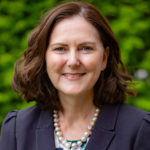Last week, I read an article in The Sydney Morning Herald about Professor Ofer Gal from the University of Sydney, who has banned the use of laptops in his lectures. He claims that “creating knowledge is a social thing” which demands student focus and interaction. Professor Gal argued that electronic devices distract from the process of learning and collaboration. He referred to a 2014 study by Mueller and Oppenheimer, which found that students who take notes by hand retain more information and have better recall and a deeper understanding than those who type their notes. The researchers proposed this was because students who handwrite are required to identify keywords and concepts as they do not have time to record everything. However, the results of this study are yet to be replicated, and a more recent study in 2021 by Urry found little difference in factual recall between students who handwrite and those who type.
What does this conflicting evidence mean for the way our students learn? I think there would be widespread agreement amongst teachers for Professor Gal’s claim that “creating knowledge is a social thing.” Sure, there are some concepts that can be learned independently, but the light bulb moments of discovery can certainly be assisted by discussion and collaboration. In Humanities subjects, this may be the development of a more nuanced idea or argument. In Mathematics and Science, it may take the shape of an alternative solution to a problem or a clearer hypothesis for an experiment. We understand how powerful sharing ideas can be, and we will continue to provide opportunities for students to deepen their understanding through collaboration.
As for taking notes, we will give students experience in typing and handwriting as long as the research is inconclusive. Walking around the Senior School Campus during the last few busy assessment weeks, I have seen students using study methods specific to each task, including cards with key concepts, facts and quotes, as well as longer typed material. Teachers will continue to guide students in the most appropriate approach for each assessment.
